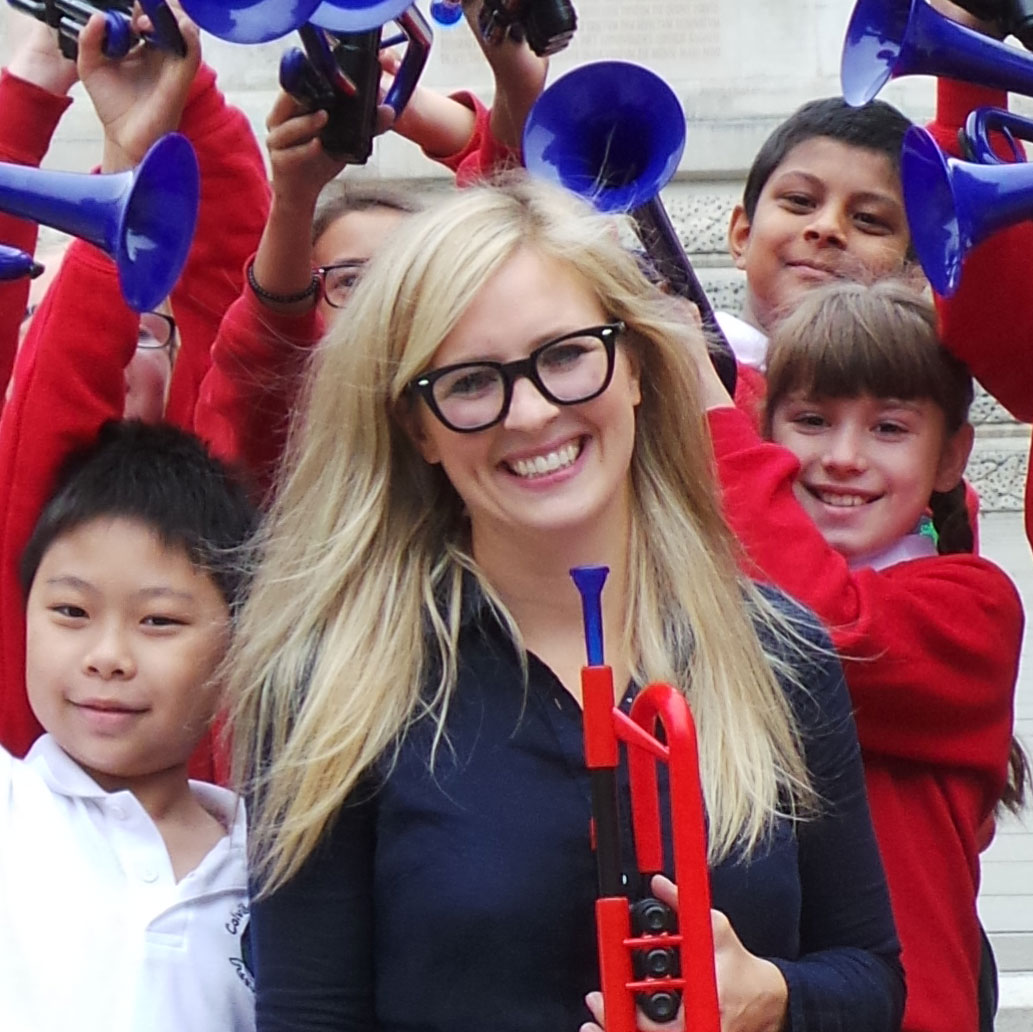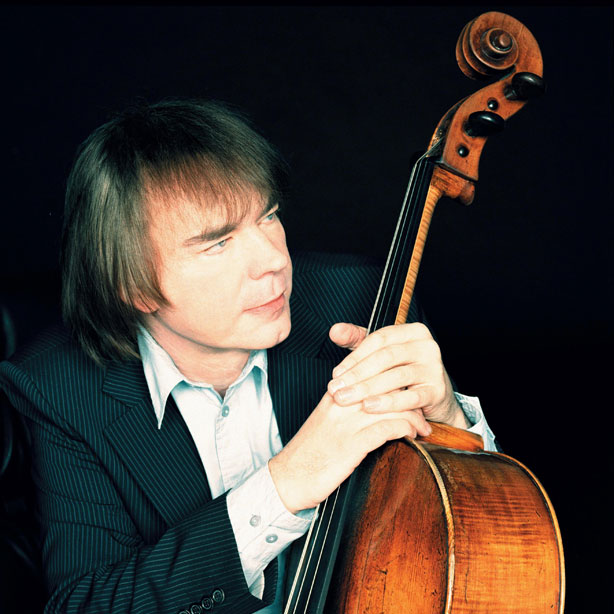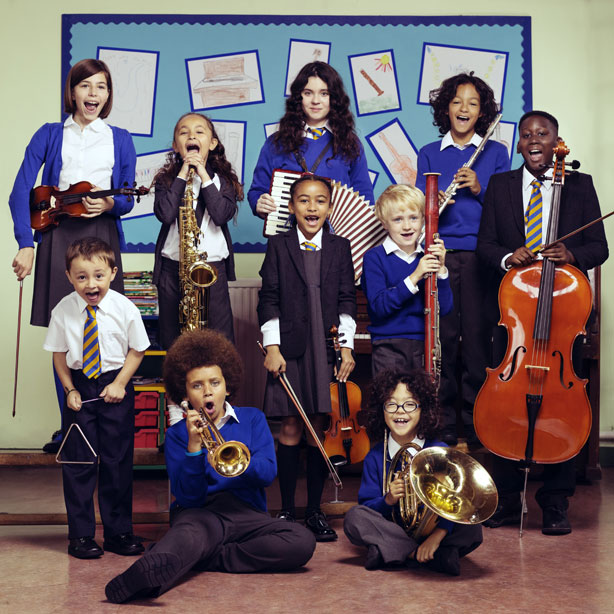Trumpeter Alison Balsom: “Learning music is not a luxury”
She’s won three Classical BRIT Awards, was crowned Gramophone Artist of the Year 2013 and has just released her latest album (‘Paris’) but acclaimed trumpeter Alison Balsom still finds time to campaign for better music education.
Yesterday, hours before she took to stage on the Manchester leg of her current UK tour, she told us why she’s backing the Don’t Stop The Music Amnesty – and why every child should have the chance to learn to play an instrument.
What do you think of James Rhodes
instrument amnesty and why are you backing it?
About 18 months ago I was actually
talking to various people about trying to do a trumpet amnesty! …
it’s one of the cheapest instruments and it’s the sort of thing
you can actually repair if you get hold of one. Plus the fact that
there’s such a strong brass-brand tradition in the UK, there are
brass instruments around that are perhaps not getting played.
But it’s just a brilliant, brilliant idea – and James is doing it so well – because it’s obviously been proven that playing music can greatly enhance so many other areas of your life, and your mental wellbeing – for anyone, not just kids.
You’ve spoken before about music being an essential part of a “proper rounded” education”. Why is this important to you?
"Music is just as important as reading and writing in my opinion. I think there are as many benefits from playing music – they’re just not so immediately apparent."
You recently went back to your old
school, Greneway Middle School in Royston. How did that come about
and what was that like?
I’m president of Royston Arts
Festival so I went back and just did a sort of concert, master class,
chat, that sort of thing. The response was very positive, very warm –
it was a really nice afternoon.
Is that where you started playing
music?
No, I started at the primary school in
Royston called Tannery Drift, which is a really great school and when
I was there I had the chance to play lots of different instruments
and have subsidised lessons and great, inspiring teachers – so that
was my very lucky start.
Did you play other instruments
before trying the trumpet?
No, I started with the trumpet. That
was my first choice and I’ve never wavered from that. Why the
trumpet? It’s a brilliant instrument! I love the sound of it, I
love the look of it – it was very popular with both boys and girls.
You’ve also been promoting the
plastic pTrumpet as ambassador for Warwick Music Ltd, when did you
get involved with that?
I’ve been doing that for a few months
because I just thought it was a really, really fantastic thing for
children, because the trumpet itself is much cheaper than a brass
instrument would be and it actually works really well, so it’s a
really obvious thing for me to support.
But it’s not just about having
instruments, it’s about having good music teachers too…
Exactly. Oh yes, you’ve got to have
inspiring mentors, people who are passionate about it as well, and
support you.
I think it comes down to the head teacher and the music department prioritising music and saying: this is really important. And obviously you need really sort of energetic, passionate staff to do that. [While visiting different schools in recent months] I’ve seen a lot of that…
Do you remember your first music
teacher?
I do. I had this amazing teacher called
Bill Thompson. He’s no longer with us but he was the most inspiring
teacher and really super-fun. All of us couldn’t wait for band
practice.
It was a little brass group actually – there were probably seven of us – but quite a lot of us have gone on to become professional musicians, which tells you a lot about the teaching.
You also visited Hawthorn Primary
School…
Yes, the primary school I went to
yesterday [Wednesday] in Newcastle is another incredible music
education initiative, In Harmony, where you see children from very,
very mixed backgrounds – but their concentration, their
self-discipline, their self-confidence, their actual skills on the
instruments – it was really extraordinary to see. I was just
delighted!
I want every child in the UK to have that experience that they’re having there … Because it’s not a luxury, this is something that will improve every other aspect of their education and the developing of themselves as adults valuable to the community … we need to try and make it happen.
So is that your aim, to get more
children studying music in the classroom?
I think actually the playing of the
instrument is even more important than the theory. I actually don’t
feel very strongly about promoting the theory of music, which of
course is important but that’s not what we’re talking about here.
We’re talking about being able express yourself, which is about the
playing of music, and the listening of music and seeing what it can
do for you – and to you.




